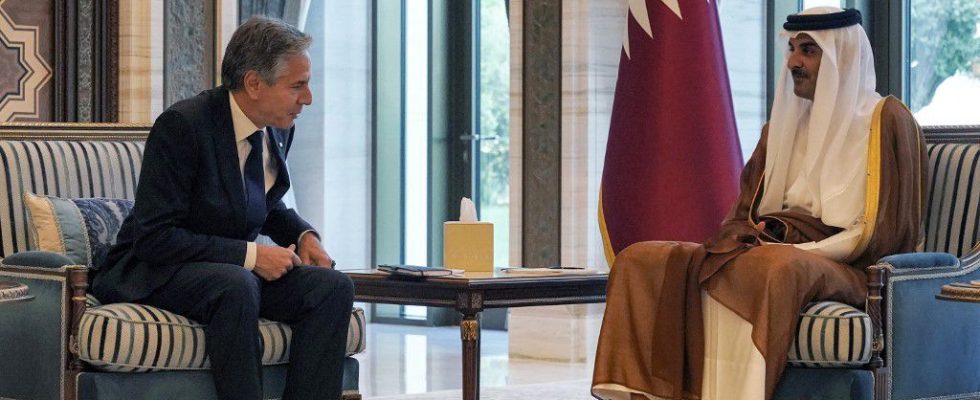In Doha, diplomats’ phones never stop ringing. After the Hamas attack on Israel on October 7, the Qatari capital became the site of intense diplomatic activity amid fears of a regional conflagration. A rare country to maintain relations with both parties, the Gulf monarchy announced, on October 9, that it would hold discussions to negotiate the release of Israeli women and children captured by Hamas during its raid two days earlier, against the Jewish state.
“We want to be able to talk to everyone,” says a Qatari source. “Our foreign policy has always been geared towards this role of mediation.” On both the Israeli and Western sides, the hope is that this ability to dialogue with Hamas will make it possible to move the hostage issue forward quickly. According to Israel, 199 of them are currently in the hands of the terrorist group.
“Unlike Saudi Arabia or the United Arab Emirates, Qatar is one of the rare countries in the Arab world to be able to negotiate with Hamas today,” underlines Jean-Loup Samaan, associate researcher at the French Institute of Relations. (IFRI) and the Middle East Institute of the University of Singapore. For around twenty years, Doha has made its ability to dialogue with all stakeholders its added value on the international scene.”
A way, too, for Western chancelleries to maintain open channels with groups with whom they refuse to sit publicly. “This role as a bridge could prove valuable,” confirms a diplomatic source. On the diplomatic front, the small emirate, barely larger than Corsica, has succeeded several times in recent years. After serving as a mediator between Washington and the Taliban before the withdrawal of American troops from Afghanistan in 2021, Doha again served as an intermediary in the exchange of prisoners between the United States and Iran last September.
Crest line concerning Hamas
On the question of Hamas, however, Qatar is moving forward on a ridge line. The killing perpetrated by the terrorist group – which left more than 1,400 Israelis dead – has revived severe criticism against the kingdom, accused of having financed the organization in recent years. Also in the viewfinder, the reception of the head of the Hamas political bureau, Ismail Haniyeh, who has lived in exile in Doha since 2019. “Qatar wants to be useful, but it helps Hamas and has an interest in preserving it, denounces Yoel Guzansky, a former Israeli official and Gulf expert at the Institute for National Security Studies in Tel Aviv. “We must put an end to this situation and say enough is enough.”
In recent years, Qatar has paid no less than $30 million per month to the Palestinian enclave, as well as fuel, to operate the only power plant in Gaza territory. A subject that has become highly flammable. “Qatar’s aid to the Gaza Strip is fully coordinated with Israel, the UN and the United States, they defend in Doha. Qatari aid provides 100 dollars to the poorest Palestinian families and […] aims to help maintain the stability and quality of life of Palestinian families in Gaza.” In fact, in 2018, Israeli Prime Minister Benjamin Netanyahu himself justified the authorization of fund transfers to Gaza “to let calm return” and in order to “avoid a humanitarian crisis”.
“The policy of Netanyahu’s government for the last ten years has been to keep Hamas quiet, while giving up on the economic plan, recalls Ely Karmon, researcher at the International Institute of Counter-Terrorism (ICT), near Tel Aviv. “Even if unlike Iran, it was not military aid, we can imagine that these accusations are now embarrassing Qatar,” adds Jean-Loup Samaan. This is probably also one of the reasons why Doha wants to play a mediation role around the hostages: if successful, this could allow it to say that its proximity to Hamas was useful in resolving the crisis.
Success of the operation or not, this conflict could force Qatar to change its position. While welcoming Qatar’s efforts in its attempt to free the hostages, US Secretary of State Antony Blinken warned, during a visit to the kingdom on October 13, that “there can no longer be a status quo with Hamas.
